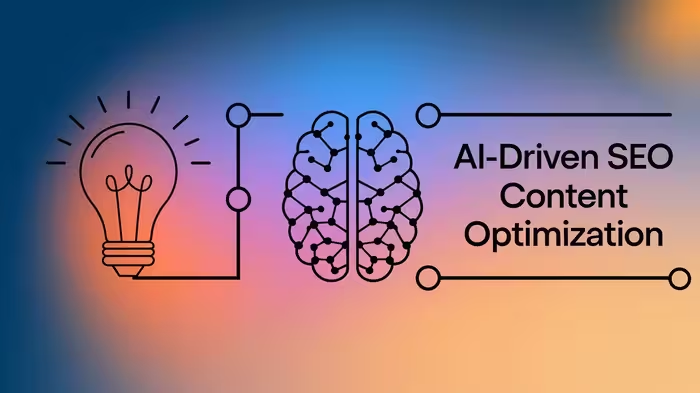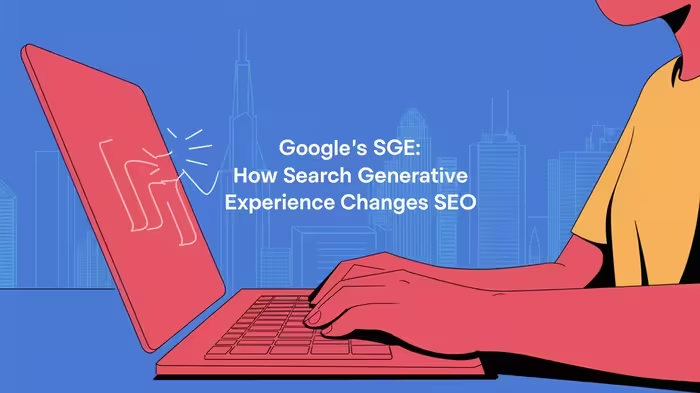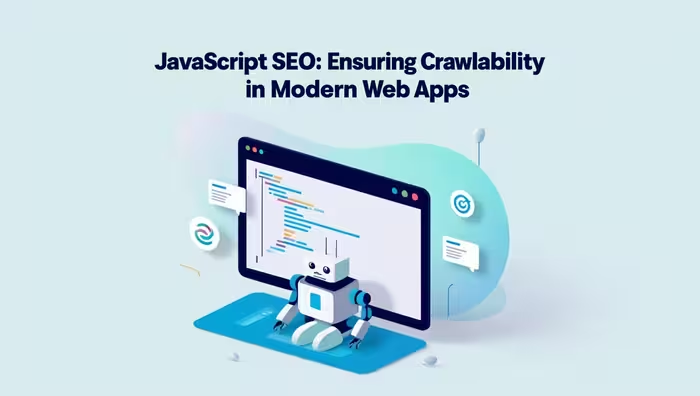In today’s digital landscape, staying ahead of the curve in search engine optimization (SEO) is crucial for businesses and content creators alike. As search algorithms become increasingly sophisticated, so too must our approaches to content optimization.
Enter AI-driven SEO content optimization – a game-changing strategy that leverages the power of artificial intelligence to supercharge your SEO efforts. In this comprehensive guide, we’ll explore how you can implement AI-driven SEO content optimization to boost your online visibility, engage your audience more effectively, and stay ahead of the competition.
Understanding AI-Driven SEO
What is AI-Driven SEO?
AI-driven SEO refers to the use of artificial intelligence technologies to enhance and automate various aspects of search engine optimization. This innovative approach goes beyond traditional SEO methods by harnessing the power of machine learning, natural language processing, and predictive analytics to optimize content for search engines and users alike.
But what does this mean in practice? Imagine having a tireless digital assistant that can analyze vast amounts of data, identify patterns, and make real-time recommendations to improve your content’s performance. That’s the essence of AI-driven SEO – it’s like having a team of data scientists and SEO experts working around the clock to refine your strategy.
Benefits of AI in SEO Content Optimization
The integration of AI into SEO content optimization brings a plethora of benefits that can significantly impact your digital marketing efforts:
- Enhanced Efficiency: AI can process and analyze data at speeds far beyond human capability, allowing for faster decision-making and implementation of SEO strategies.
- Improved Accuracy: By reducing human error and bias, AI provides more reliable insights and recommendations for content optimization.
- Personalization at Scale: AI enables the creation of personalized content experiences for different user segments, improving engagement and conversion rates.
- Predictive Insights: Advanced machine learning algorithms can forecast trends and user behavior, helping you stay ahead of the curve in your content strategy.
- Continuous Optimization: AI systems can monitor and adjust your SEO efforts in real-time, ensuring your content remains optimized even as search algorithms evolve.
By leveraging these benefits, businesses can create more effective, user-centric content that not only ranks well in search engines but also resonates with their target audience.
Key Components of AI-Driven SEO Content Optimization
To fully grasp the potential of AI-driven SEO, it’s essential to understand its key components. These technological pillars work in concert to revolutionize how we approach content optimization.
Natural Language Processing (NLP)
Natural Language Processing is the backbone of AI’s ability to understand and generate human language. In the context of SEO, NLP allows AI systems to:
- Analyze the intent behind search queries
- Understand the context and semantics of content
- Generate human-like text for content creation
- Identify relevant topics and entities within a piece of content
By leveraging NLP, AI can help create content that not only includes the right keywords but also addresses the user’s intent in a natural, contextually relevant manner.
Machine Learning Algorithms
Machine learning algorithms form the core of AI’s ability to learn and improve from data. In SEO content optimization, these algorithms can:
- Identify patterns in successful content across various metrics
- Predict which content topics and formats are likely to perform well
- Optimize content structure and readability based on user engagement data
- Refine keyword strategies by analyzing search trends and user behavior
The power of machine learning lies in its ability to continuously improve its recommendations as it processes more data, ensuring your SEO strategy remains cutting-edge.
Predictive Analytics
Predictive analytics uses historical data to forecast future trends and outcomes. In the realm of SEO content optimization, this component:
- Anticipates changes in search algorithm updates
- Predicts user search behavior and content preferences
- Forecasts the potential performance of content before publication
- Identifies emerging topics and keywords before they become mainstream
By harnessing predictive analytics, you can stay ahead of the curve, creating content that meets future demand and adapts to evolving search landscapes.
Steps to Implement AI-Driven SEO Content Optimization
Now that we’ve covered the foundational elements, let’s dive into the practical steps you can take to implement AI-driven SEO content optimization in your digital strategy.
Assessing Your Current SEO Strategy
Before integrating AI into your SEO efforts, it’s crucial to evaluate your current strategy:
- Audit Your Existing Content: Analyze your content inventory for performance, relevance, and optimization levels.
- Identify Key Performance Indicators (KPIs): Determine which metrics are most important for your business goals.
- Evaluate Your Technical SEO: Ensure your website’s technical foundation is solid before layering on AI-driven optimizations.
- Assess Your Competitive Landscape: Understand where you stand in relation to your competitors in search rankings.
This assessment will provide a baseline against which you can measure the impact of AI-driven optimizations.
Choosing the Right AI Tools
The AI tool market for SEO is vast and varied. Here are some factors to consider when selecting the right tools for your needs:
- Compatibility: Ensure the AI tools integrate well with your existing SEO and content management systems.
- Scalability: Choose tools that can grow with your business and handle increasing amounts of data.
- Ease of Use: Look for user-friendly interfaces that don’t require extensive technical knowledge.
- Customization: Opt for tools that allow you to tailor their algorithms to your specific industry and audience.
- Support and Updates: Select vendors that offer robust support and regular updates to keep pace with SEO trends.
Some popular AI-driven SEO tools include MarketMuse, Clearscope, and Frase, each offering unique features for content optimization.
Integrating AI into Your Content Workflow
Once you’ve chosen your AI tools, it’s time to integrate them into your content creation and optimization workflow:
- Train Your Team: Ensure your content creators and SEO specialists understand how to use the AI tools effectively.
- Establish AI-Assisted Processes: Create new workflows that incorporate AI insights at various stages of content creation and optimization.
- Set Up Automated Reporting: Configure your AI tools to provide regular reports on content performance and optimization opportunities.
- Implement Feedback Loops: Establish processes for continuously feeding performance data back into your AI systems for improved recommendations.
Remember, the goal is to augment human creativity and expertise with AI insights, not to replace human involvement entirely.
AI-Powered Keyword Research and Analysis
One of the most impactful applications of AI in SEO is in the realm of keyword research and analysis. Let’s explore how AI is transforming this crucial aspect of content optimization.
Identifying High-Value Keywords
AI-driven keyword research tools go beyond traditional methods by:
- Analyzing vast amounts of search data to uncover long-tail keyword opportunities
- Identifying semantic relationships between keywords to expand your targeting strategy
- Predicting the difficulty of ranking for specific keywords based on current SERP landscapes
- Suggesting content topics that align with high-value keyword clusters
By leveraging these AI capabilities, you can discover keyword opportunities that may have been overlooked by traditional research methods.
Understanding User Intent
AI excels at deciphering the intent behind search queries, allowing you to create content that truly meets user needs:
- Categorizing keywords by intent (informational, navigational, transactional, or commercial)
- Analyzing search result pages to understand what type of content Google considers relevant for specific queries
- Identifying content gaps in your strategy based on user intent analysis
- Suggesting content formats and structures that best address different types of user intent
By aligning your content with user intent, you’re more likely to satisfy both search engines and your audience, leading to improved rankings and engagement.
Content Creation and Optimization with AI
AI isn’t just for research and analysis; it’s also revolutionizing the content creation and optimization process itself.
Generating AI-Assisted Content Ideas
Writer’s block becomes a thing of the past with AI-powered content ideation:
- Analyzing trending topics in your industry to suggest timely content ideas
- Identifying questions your audience is asking that your content hasn’t yet addressed
- Suggesting unique angles on popular topics to help your content stand out
- Recommending content formats (e.g., listicles, how-to guides, case studies) based on what performs best for specific topics
These AI-generated ideas serve as excellent starting points for your content creators, sparking creativity and ensuring your content pipeline remains fresh and relevant.
Optimizing Content Structure and Readability
Once you have your content ideas, AI can help optimize the structure and readability of your articles:
- Suggesting optimal content length based on top-performing articles for your target keywords
- Recommending headings and subheadings to improve content structure and scannability
- Analyzing readability scores and suggesting improvements for sentence and paragraph length
- Identifying opportunities to include relevant internal and external links
By following these AI-driven recommendations, you can create content that’s not only SEO-friendly but also user-friendly, encouraging longer on-page times and reduced bounce rates.
AI-Driven Content Performance Tracking
The work doesn’t stop once your content is published. AI plays a crucial role in tracking and improving content performance over time.
Real-Time Analytics and Insights
AI-powered analytics tools provide deep, real-time insights into your content’s performance:
- Tracking rankings for target keywords and identifying ranking fluctuations in real-time
- Analyzing user engagement metrics (e.g., time on page, scroll depth) to identify areas for improvement
- Monitoring social media and backlink data to gauge content impact and virality
- Providing predictive analytics on expected traffic and conversion rates
These real-time insights allow you to make quick adjustments to your content strategy, capitalizing on opportunities and addressing issues promptly.
Continuous Improvement Strategies
AI doesn’t just provide data; it offers actionable strategies for ongoing content optimization:
- Suggesting updates to existing content based on changes in search trends or user behavior
- Identifying underperforming content and recommending optimization tactics
- Automating A/B testing of different content elements (e.g., titles, meta descriptions) to improve click-through rates
- Personalizing content recommendations for different user segments to improve engagement
By implementing these AI-driven improvement strategies, you can ensure your content remains relevant, engaging, and optimized for both search engines and users.
Overcoming Challenges in AI-Driven SEO
While AI offers tremendous benefits for SEO content optimization, it’s not without its challenges. Let’s address some common concerns and how to overcome them.
Balancing AI Recommendations with Human Creativity
One of the biggest fears surrounding AI in content creation is that it might lead to robotic, uninspired content. To maintain a balance:
- Use AI recommendations as a starting point, not an end-all solution
- Encourage content creators to infuse their unique voice and perspective into AI-suggested topics
- Regularly review and adjust AI parameters to ensure they align with your brand voice and values
- Use human editors to refine AI-generated content and ensure it resonates with your audience
Remember, the goal is to augment human creativity with AI insights, not replace it entirely.
Addressing Ethical Concerns
As with any AI application, there are ethical considerations to keep in mind:
- Ensure transparency about the use of AI in your content creation process
- Be cautious about potential biases in AI algorithms and work to mitigate them
- Respect user privacy when collecting and analyzing data for AI-driven optimizations
- Stay informed about regulations regarding AI use in digital marketing and ensure compliance
By addressing these ethical concerns head-on, you can build trust with your audience and use AI responsibly in your SEO efforts.
Future Trends in AI-Driven SEO Content Optimization
As we look to the future, several exciting trends are emerging in the field of AI-driven SEO:
- Voice Search Optimization: AI will play a crucial role in optimizing content for voice-activated devices and natural language queries.
- Visual Search Integration: AI algorithms will become better at understanding and optimizing visual content for search engines.
- Hyper-Personalization: AI will enable the creation of dynamically personalized content experiences for individual users.
- Predictive Content Creation: AI systems will be able to predict and generate content for trending topics before they peak.
- Automated Content Updates: AI will autonomously update existing content to keep it fresh and relevant without human intervention.
Staying abreast of these trends and integrating them into your SEO strategy will help you maintain a competitive edge in the ever-evolving digital landscape.
Conclusion
Implementing AI-driven SEO content optimization is no longer a futuristic concept – it’s a present-day necessity for businesses looking to thrive in the digital age. By leveraging the power of natural language processing, machine learning, and predictive analytics, you can create content that not only ranks well in search engines but also truly resonates with your target audience.
Remember, the key to success lies in striking the right balance between AI-driven insights and human creativity. Use AI as a powerful tool to augment your content strategy, but don’t lose sight of the human touch that makes your brand unique.
As you embark on your AI-driven SEO journey, stay curious, be willing to experiment, and always keep your audience’s needs at the forefront. With the right approach, AI can be the catalyst that propels your content strategy to new heights of success.
FAQs
- Q: How does AI-driven SEO differ from traditional SEO methods?
A: AI-driven SEO leverages machine learning and natural language processing to provide more accurate, data-driven insights and automate many aspects of content optimization. Traditional SEO relies more heavily on manual analysis and human intuition. - Q: Can AI completely replace human SEO specialists?
A: No, AI is not meant to replace human SEO specialists but to augment their capabilities. Human expertise is still crucial for strategy, creativity, and interpreting AI-generated insights in the context of broader business goals. - Q: How often should I update my AI-driven SEO strategy?
A: While AI provides real-time insights, it’s good practice to review and adjust your overall strategy quarterly. However, be prepared to make smaller, data-driven adjustments more frequently based on AI recommendations. - Q: Is AI-driven SEO only for large enterprises with big budgets?
A: No, there are AI-driven SEO tools available for businesses of all sizes and budgets. Many offer scalable solutions that can grow with your business. - Q: How can I measure the ROI of implementing AI-driven SEO content optimization?
A: Track key performance indicators such as organic traffic growth, keyword rankings, conversion rates, and engagement metrics before and after implementing AI-driven strategies. Many AI tools also offer built-in ROI tracking features.


